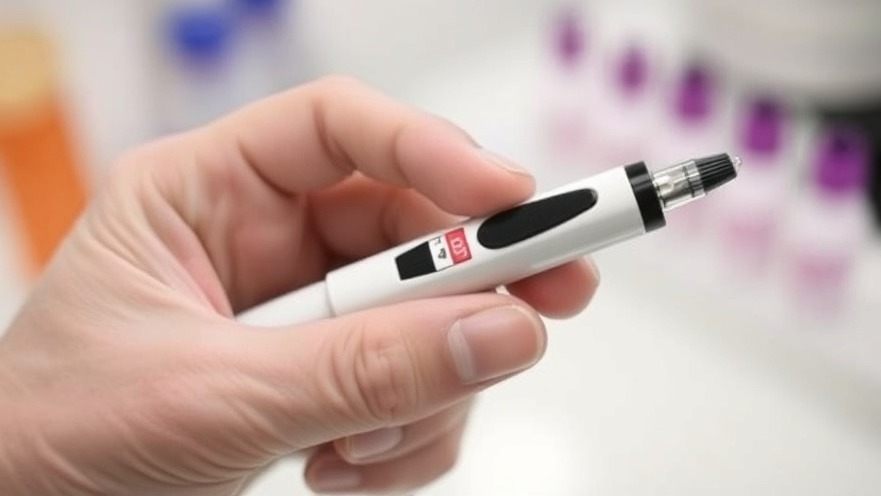
Revolutionizing Opioid Detection with a Handheld Device
In a groundbreaking study published in Analytical Chemistry, researchers have unveiled a pen-like tool that can detect opioids through non-invasive samples taken from the skin's surface. This novel device, an advanced version of the 'MasSpec Pen' originally designed for cancer identification, promises significant advancements in how medical practitioners screen for drug use, particularly in emergency settings.
Why This Innovation Matters: Addressing the Opioid Crisis
Opioids are a major driver of overdose deaths in the U.S., with substances like fentanyl, morphine, and oxycodone leading the fatalities. Traditional screening methods, including blood, saliva, and urine tests, can be cumbersome and time-consuming in urgent scenarios. The need for a quick, reliable, and non-invasive screening tool has never been more critical. The MasSpec Pen offers a solution that not only streamlines the process but provides access to real-time information that can be crucial for intervention.
The Science Behind the MasSpec Pen
The modified MasSpec Pen operates by delivering a small droplet of a water-ethanol mix to the skin, where it interacts with the molecules present, collecting them into the device. Within three seconds, this ready-to-analyze sample can be either assessed immediately or stored for later analysis. In trials, researchers detected fentanyl in seven out of eight participants confirmed to have been exposed to it, demonstrating the potential effectiveness of this technology.
Potential Limitations and Future Developments
While the results show promise, the detection levels of the MasSpec Pen were not on par with traditional methods, indicating that further refinement is necessary. However, the tool's portability and ease of use position it as a strong candidate for future applications in clinics and emergency rooms.
Transforming Clinical Practice: Implications for Healthcare Professionals
For concierge health practitioners, staying ahead of technological advancements is essential not just for efficiency but also for patient care. The ability to quickly assess drug use could enable better treatment decisions and more timely interventions. This can lead to improved patient outcomes and could also support practices in establishing themselves as leaders in innovative care.
Wider Implications for Drug Screening
The advent of non-invasive sampling tools like the MasSpec Pen could set a precedent for more technological innovations in drug screening and health diagnostics. Already, research is looking at how this technology could be adapted for various substances beyond opioids, illustrating a future where instant, non-invasive tests could become the norm for screening.
Empowering Practitioners with Knowledge
For practitioners considering implementing such technology, understanding both its potential and limitations is critical. This device could drastically change practices, but it’s essential to maintain awareness of the current capabilities of the tool and to remain prepared for future iterations that may enhance its efficacy.
Conclusion: Why Stay Informed?
It’s crucial for health practitioners to remain alert to innovations like the MasSpec Pen, as they highlight significant shifts in medical technology that can impact practice operations and patient care. As the healthcare landscape evolves, embracing new tools will be vital in ensuring superior and timely care for all patients.
Stay informed about developments in healthcare technology and consider the implications of these innovations for your practice. What steps could you take to integrate new tools and techniques for enhanced patient outcomes?
 Add Row
Add Row  Add
Add 




Write A Comment